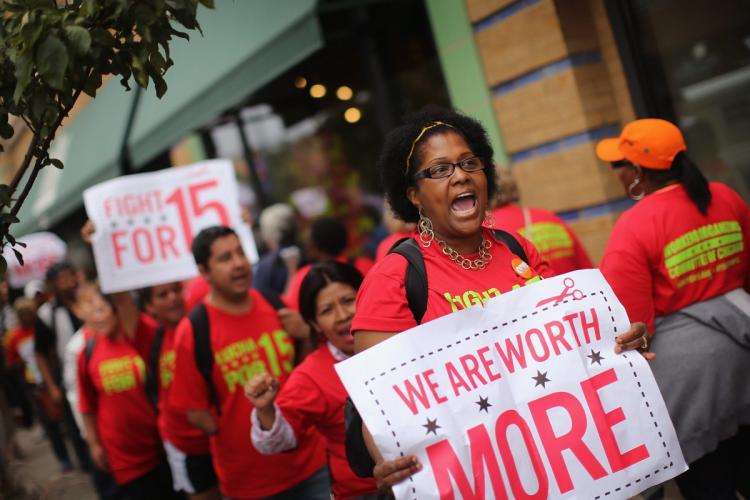Uncategorized
New Data Doesn’t Dispel Income Inequality

Last week, the media reported fresh numbers from the Census Bureau – the U.S. median income rose to record levels last year while poverty decreased. Good news for workers, right?
But hidden beneath those top-line numbers was the real truth. Income inequality, an issue that gained traction with the public in the wake of the Great Recession, is still a big problem. The Gini index, which measures the wealth gap, found little change in the year-over-year numbers between 2015 and 2016. Longer term, however, that is not the case. In fact, since 2006, the income divide has increased in every state except Alaska. Montana, Rhode Island and Vermont led the way.
The sunniest of the census data also shielded what’s happening to many people of color in this country. While white families take in just north of $65,000 a year on average, Latino families only earn $47,675. And African-American families trail even further behind, at $39,490. That doesn’t seem like progress.
Some have suggested that lawmakers of good will should tread lightly on this subject. They argue that the public doesn’t really care about income inequality and that what they want is income opportunity. But what kind of opportunity are workers getting if they continue to fall farther behind even as the nation’s economy heads in the right direction?
Workers are getting a raw deal, plain and simple, and a new survey backs that up. Americans, when informed about the state of economic inequality in this country, are less likely to believe they and others can get a fair shake, the poll finds. They also want government to do something about it.
“Among people who read about inequality, 53 percent indicated some degree of support for government efforts to reduce the income gap, compared to 43 percent who did not read inequality. Similarly, the people became more likely to support efforts by major companies to reduce pay gaps,” academics Leslie McCall and Jennifer Richeson wrote in The Washington Post.
Of course, there is something workers and policymakers could do that would improve incomes nationwide – expand unions. If more workers organized with the support of states that encourage union membership, workers would have higher salaries, better benefits and a retirement nest egg. But that’s not happening right now.
Instead, corporations, CEOs and the top one percent are rigging the rules. As a result, corporate profits skyrocket and it’s harder for working people to make ends meet. While they might be working harder than ever, the American dream continues to slip away.
The American economy benefits when unions are strong. The more money workers have to spend, the more products they buy, creating more jobs and better wages of all workers. It’s time for elected officials to wake up to this reality.